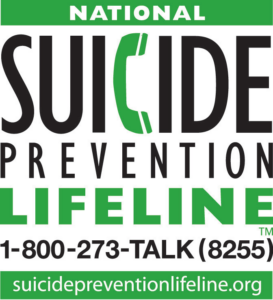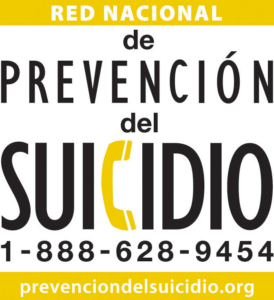FEA provides the resources below to help parents and educators recognize the warning signs and risk factors for suicide — and where to find help and support.



- What are the warning signs for suicide?
- Helpful organizations
- Useful resources for parents and educators
September is National Suicide Prevention Awareness Month. Florida’s suicide rate increased 10.6 percent from 1999 to 2016. Suicide is the 10th leading cause of death in the U.S., and the 2nd leading cause of death for people aged 10–34.
The Florida Education Association believes it is crucial to the well-being and safety of our students to take time to share resources and stories to shed light on this highly taboo and stigmatized topic. Suicide prevention groups use this month to reach out to those affected by suicide, raise awareness and connect individuals with suicidal ideation to treatment services.
It is also important to ensure that individuals, friends and families have access to the resources they need to discuss suicide prevention. Among the resources we’ve collected below are:
- What are the warning signs for suicide?
- Helpful organizations
- Useful resources for parents and educators
“Suicide is a leading cause of death for Americans – and it’s a tragedy for families and communities across the country. From individuals and communities to employers and healthcare professionals, everyone can play a role in efforts to help save lives and reverse this troubling rise in suicide.”
— CDC Principal Deputy Director Anne Schuchat, M.D.
In a May 14, 2018 post, NEA Today discussed the the increase in teen suicide rates across the country and how more and more legislatures are looking to school personnel to help identify untreated mental health conditions in our students. Recently, Florida’s First Lady Casey DeSantis announced a new state mental health initiative called “Hope for Healing” followed by the Florida State Board of Education voting to require public school to teach 5 hours of mental health training for students in grades 6-12.
What Are the Warning Signs for Suicide?
Suicide victims come from all age groups and backgrounds.
While there is no “typical” suicide victim, there are common warning signs. Being aware of these signs may prevent someone from getting to the point where he or she feels the need to act on thoughts of suicide.
Seek help as soon as possible by contacting a mental health professional or by calling the Florida Crisis Lifeline at 1-800-273-TALK if you or someone you know exhibits any of the following signs:
- Threatening to hurt or kill oneself or talking about wanting to hurt or kill oneself
- Looking for ways to kill oneself by seeking access to firearms, available pills, or other means
- Talking or writing about death, dying, or suicide when these actions are out of the ordinary for the person
- Feeling hopeless
- Feeling rage or uncontrolled anger or seeking revenge
- Acting reckless or engaging in risky activities – seemingly without thinking
- Feeling trapped – like there’s no way out
- Increasing alcohol or drug use
- Withdrawing from friends, family, and society
- Feeling anxious, agitated, or unable to sleep or sleeping all the time
- Experiencing dramatic mood changes
- Seeing no reason for living or having no sense of purpose in life
Many people have these risk factors but are not suicidal. However, if someone you know has these symptoms, you should encourage them to seek help.
Helpful Organizations
- National Alliance on Mental Illness (NAMI)
- NAMI Florida
- Suicide Prevention Lifeline You’ll be connected to a skilled, trained counselor in your area:
- 1-800-273-TALK (8255)
- Lifeline Chat: Lifeline Chat is a service of the National Suicide Prevention Lifeline, connecting individuals with counselors for emotional support and other services via web chat.
- Suicide Prevention Resource Center: Florida | National
- Florida Suicide Prevention Coalition
- Suicide Prevention Project at University of South Florida
- Society for the Prevention of Teen Suicide
Useful resources for parents and educators
- Talking with Students About Suicide Prevention: Share My Lesson Webinar: Panelists from the American School Counselor Association, National Association of School Nurses and National Association of School Psychologists will discuss recent cases of suicide in pop culture and how to support students who may be grieving, suicidal, triggered or in need of other specific supports.
- After a Suicide: A Toolkit for Schools [PDF, 1.1 mb]: The American Foundation for Suicide Prevention (AFSP) and the Suicide Prevention Resource Center (SPRC) produced After a Suicide: A Toolkit for Schools to assist schools in the aftermath of a suicide in the school community.
- Assessing Suicide Risks: Initial Tips for Counselors, published by the Substance Abuse and Mental Health Services Administration, describes a brief assessment process to determine if a client may be suicidal and how to respond. Includes the Lifeline phone number.
- Toolkit on Suicide Prevention for Senior Living Communities: This toolkit equips senior living staff with resources to promote mental health, suicide prevention, and encourages active participation among residents. It includes guidelines for integrating suicide prevention into ongoing programs, hands-on tools, and training manuals.
- Depression: What You Need to Know: This booklet, prepared by the National Institute of Mental Health (NIMH), provides an overview on depression including the four things that everyone should know about depression.
- NEA Downloadable School Crisis Guide: NEA’s School Crisis Guide helps schools prevent, prepare for, respond to, and recover from tragedies like school shootings. It presents resources, tools, recommendations, and evidence-based practices for incorporating best practices in school mental health into school crisis plans.
- Preventing Suicide: A Technical Package of Policy, Programs, and Practices [PDF 6.4 MB, 62 Pages]; Also available in Spanish [PDF, 34 MB, 64 Pages]: Published by the CDC’s National Center for Injury Prevention and Control, Division of Violence Prevention, this technical package represents a select group of strategies based on the best available evidence to help communities and states sharpen their focus on prevention activities with the greatest potential to prevent suicide.

